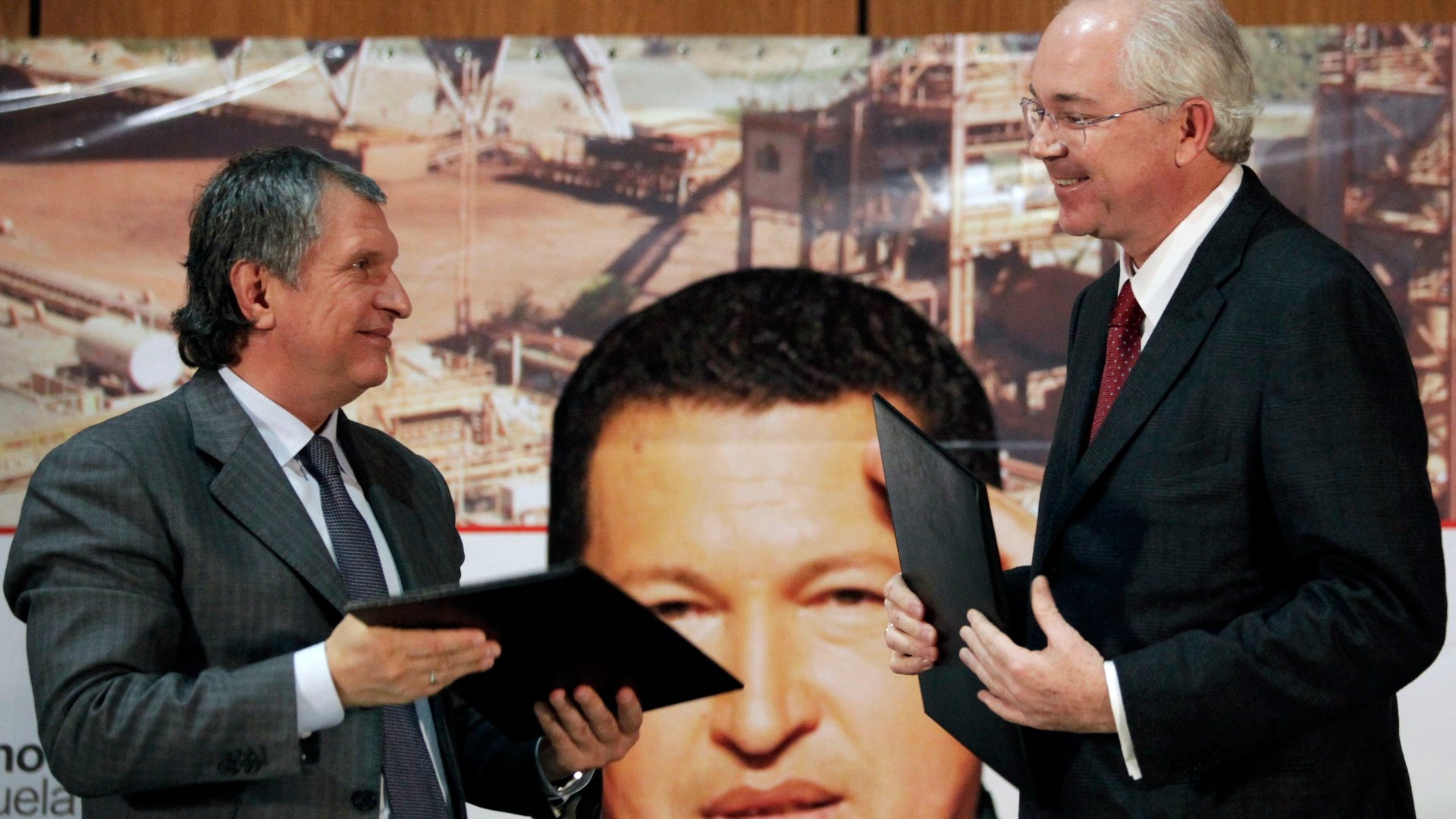Venezuela devalues its currency to shore up ill Chavez’s shaky finances
In a single decision made from his sickbed in Cuba, Venezuelan president Hugo Chavez immediately devalued his nation’s currency, the bolivar, by nearly a third—to 6.3 bolivars to the US dollar, from 4.3. The change could prop up the country’s crumbling finances, at the cost of cash reserves held there by multinational corporations and increasing inflation.


In a single decision made from his sickbed in Cuba, Venezuelan president Hugo Chavez immediately devalued his nation’s currency, the bolivar, by nearly a third—to 6.3 bolivars to the US dollar, from 4.3. The change could prop up the country’s crumbling finances, at the cost of cash reserves held there by multinational corporations and increasing inflation.
Venezuela’s fiscal deficit more than doubled to 11% of GDP in the last year as Chavez sought to win a close reelection campaign. The country’s semi-nationalized economy has struggled since the recession and grown increasingly dependent on oil exports. The immediate increase in bolivars flowing into government coffers from the oil sector will help reduce the country’s deficits.
Many multinationals—and particularly consumer goods vendors like Pepsi, Colgate and Diageo—won’t be happy with the news. Their substantial cash holdings in Venezuela and earnings from the countries large consumer market just became significantly less valuable. The same goes for global investors who may have bought bonds denominated in bolivars.
But the effect on Venezuela’s citizens is far from clear: The country already suffers from high inflation, with price levels rising some 22% last year. The move to devalue the currency could sorely impact the purchasing power of consumers who depend on imports for many basic goods, and price increases are expected to continue, hurting savings. But a more practical concern may take precedence: Many citizens have trouble obtaining dollars, which are currently trading at 18.4 to the bolivar on the black market, and the devaluation is expected to ease those shortages.
While the devaluation may play into the strained narrative of global currency war, it’s fairly clear that Venezuela’s economic circumstances are unique. It’s not having trouble developing an export sector or maintaining a current account surplus. In most non-oil sectors, however, Venezuela is dependent on imports: Its citizens don’t have enough dollars to buy all the foreign goods they want!
Oil exporting countries devalue their currency not to increase exports but limit imports. The devaluation may be a project of Chavez’s fiscal profligacy, but it’s an unintentional incentive for domestic development, if extensive capital and price controls alongside fears of expropriation didn’t offer so many obstacles.
“We have to learn to do a lot with a little, more with less,” Venezuelan vice president Nicolas Maduro said before the announcement. “We need to overturn the culture in which historically, because of oil, we’ve done little with a lot.”